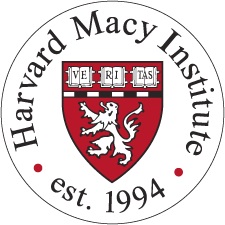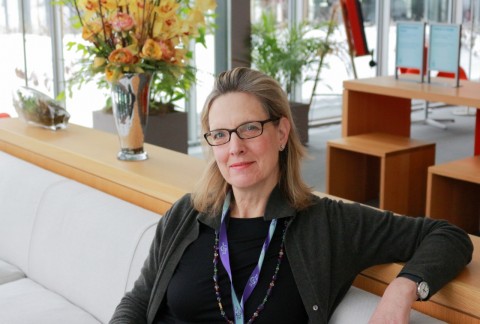A foundational principle of the Harvard Macy Institute (HMI) is to build and nurture collaborations to foster cross disciplinary learning and problem solving. Early collaborations begun with the plans described in the 1994 successful grant submission to the Josiah Macy Jr. Foundation, which laid the foundation for our 26 year collaborations with faculty at the Harvard Medical School, the Harvard Graduate School of Education and the Harvard Business School. The Macy Foundation’s assumption was that neither institution would be as successful working in isolation as they would be in partnership. This blog post tells the story of another fruitful collaboration - one in which health professions educators and museum educators collaborated to design a new fellowship, sponsored jointly with the Cambridge Health Alliance and now part of the HMI course portfolio.
Over a decade ago, HMI faculty member Liz Gaufberg in collaboration with museum educators Corinne Zimmermann, Ray Williams, and Judy Murray, began to offer evening elective workshops for HMI Program for Educators in Health Professions scholars at the Harvard Art Museums and the Museum of Fine Arts, Boston. These workshops (which often forced participants to choose between a night at the Red Sox and a night at the museum!) engaged scholars with art museum collections to reinforce key HMI course concepts. The museum experience intentionally deepened our dive into our assumptions about teaching and learning, by re-learning how to look at and listen closely to what is all around us. Examining a work of art with guided facilitation allowed for exploration of our own habits (of practice and mind) that mediate what is possible for us as educators. The complex, ambiguous and subjective nature of works of art make them excellent catalysts for learning, when paired with effective engagement and meaning-making strategies. In a typical museum session, Corinne, Ray or Judy would lead team-based activities designed to hone observation skills and evidentiary reasoning, or that invited participants to think in metaphor as a way to build reflective practice. According to John Dewey, learning doesn’t happen just in the doing but also in the reflection. After each art-based experience, Liz would lead a debriefing conversation helping scholars translate their learning to health care and health professions education contexts.
As the work evolved, it became clear there was a growing movement, nationally and internationally, to use the rich art museum environment as a platform for health professions education. A 2016 New York City convening on Art Museum and Medical School Partnerships, brought together more than 50 art museum/medical school partnerships to share practices. Recognizing widespread interest in this emerging field, the authors proposed to design and offer a fellowship for health professions educators interested in working with art museums. The HMI Art Museum Fellowship in Health Professions Education was developed and piloted in 2019.
For this inaugural year, we sought design-partner Fellows who had already demonstrated a commitment to art museum-based education, institutional support, and a foundation in HMI approaches to reflective teaching and learning. Our course development and faculty team included Museum Educators Corinne Zimmermann, Ray Williams, Judy Murray and Medical Educators Liz Gaufberg and Lisa Wong. Subha Ramani, Shari Tishman, and Brooke DiGiovanni Evans facilitated special sessions. We accepted an international and interdisciplinary cohort of 12 health professions educators from fields ranging from medicine to nursing to dentistry to psychology. Three of our Fellows were palliative care clinicians and several projects focused on team building and renewal. We met in person at the Museum of Fine Arts, Boston for two days in January 2019 and four days in May 2019 (aligned with the dates of the HMI Program for Educators in Health Professions) and introduced participants to an expansive set of art museum-based practices. These included close looking experiences using Visual Thinking Strategies, a research-based pedagogy, to hone observation and interpretation skills; creation of group poems to reflect on and support team work; mindfulness and music to foster renewal; and activities to cultivate empathetic capacities and compassion, tolerate ambiguity and examine values and biases. We made sure to offer activities that invited stories to help us know one another better and created a spirit of psychological safety within the group. The Personal Responses Tour is one such activity which harnesses the power of metaphor to generate insights and build authentic relationships.
In between in-person sessions, we hosted a virtual classroom using a learning management system for ongoing reflection, discussion, and resource sharing. Optional monthly online meetings allowed fellows to work on adapting our museum-based educational approached to their home settings, seek project advice and problem solve challenges.
With funding from the Cambridge Health Alliance and the Sandra and Arnold Gold Humanism Research Fund we are conducting an evaluation of the pilot year in order to grow and enhance the program.
Inspired by a reflective thinking routine exercise shared by Shari Tishman at Harvard’s Project Zero, we asked our first-year cohort to complete the prompt, “I used to think ...Now I think.” In the words of a Fellow: “I used to think that art museum-based HPE was a pedagogical method that used a circumscribed set of tools to improve a circumscribed set of learner outcomes. Now I think that art museum-based HPE is a pedagogical method that encompasses an infinite number of tools and that has application beyond the visual arts and the potential to revolutionize the teaching and practice of medicine and to actually change the world.”
Our fellowship is becoming a community of practice - one in which we support each other as we work to shape, research and move this emerging field forward. Following the HMI tradition, several Fellows have already volunteered to become “returning scholars” and lead project groups and electives with our new cohort. We will be open for applications for our second cohort in late August with applications due on November 15, 2019. The course will be held from May 7 - 10 & October 16 - 18, 2020.
For additional information, check out our website or tweet us at #HMIMuseum!
We are grateful to the Museum of Fine Arts, Boston, especially Brooke DiGiovanni Evans, Head of Gallery Learning and Barbara Martin, former Alfond Curator of Education, for providing a rich and welcoming “home-base” for the fellowship at the MFA.
Did you know that the Harvard Macy Institute Community Blog has had more than 175 posts? Previous blog posts have explored topics including reflections across the career continuum, scholar testimonials from the Leadership and Innovation in Health Professions Course, and reflecting upon the Harvard Macy experience.
Author BIO
Elizabeth Gaufberg, MD MPH (Educators, ’04), is a physician, health professions educator and Associate Professor of Medicine and Psychiatry at Harvard Medical School. Liz is currently Director of Professional and Academic Development at the Cambridge Health Alliance, and a Senior Consultant to the Association of American Medical Colleges Arts and Humanities Initiative. She previously served as the Jean and Harvey Picker Founding Director of the Arnold P. Gold Foundation Research Institute and developed a community of practice of researchers, educators and advocates dedicated to advancing humanism in healthcare. Liz’s areas of professional interest include innovative models of medical education, including longitudinal integrated clerkships and humanities and arts-based pedagogy. She leads large group teaching sessions at the Program for Educators in the Health Professions course on Assumptions about Teaching and Learning and the Hidden Curriculum. Liz can be followed on Twitter or contacted via email.
Corinne Zimmermann, MA, MEd, is an experienced museum educator and educational consultant. She designs and leads museum-based sessions that address issues of practice for health care groups, including interdisciplinary teams from the Brigham and Women’s Hospital Integrated Teaching Unit, and the Mount Auburn Hospital Internal Medicine Residency Humanistic Curriculum. Corinne has held senior positions in the education departments at the Isabella Stewart Gardner Museum, the Harvard Art Museums, Harvard University, and the Peabody Essex Museum. She previously served as New England Regional Director for Visual Understanding in Education, home of Visual Thinking Strategies. Corinne’s areas of professional interest include multidisciplinary teamwork and communication, observation and critical thinking skills, facilitative leadership, and mindfulness and self-care. Corinne can be followed on Twitter, or contacted via email.
HMI Staff




